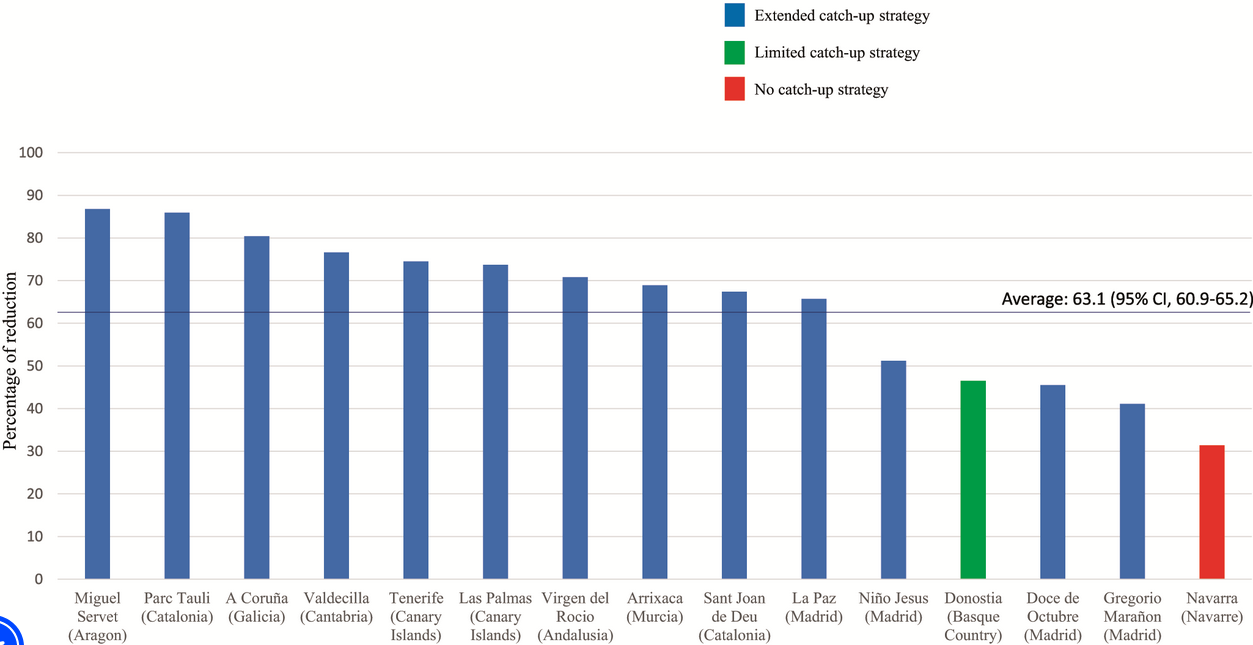TL;DR: New RSV vaccines can dramatically reduce the disease burden for babies and older adults.
While RSV (respiratory syncytial virus) doesn’t get quite as much media attention as COVID-19 or the flu, it’s still a respiratory virus to watch out for. While it feels like a “common cold” for many, RSV can quickly turn dangerous for babies and older adults. RSV is highly contagious, spreading easily both through the air AND from virus left on hands and surfaces (making it especially easy for kids to spread).
RSV infects the lower lungs and can lead to severe complications like pneumonia (infection in the lungs) and bronchiolitis (inflammation of the airways in the lungs). RSV is the leading cause of infant hospitalizations in the US, and normally causes more than 2 million doctor’s visits in kids under age 5 annually. RSV also causes 100,000-160,000 hospitalizations a year for adults aged 60 and over. RSV activity typically picks up in the fall and peaks in the winter– so pretty much now.
That’s the bad news. The *amazing* news is that we have new tools to dramatically reduce the risk of severe illness from RSV (YAY SCIENCE!!).
Last year was the first season RSV vaccines were available, so you might not have been aware, or you might have wanted to wait and see how the roll-out went. Now we know that even in the real world, these vaccines proved themselves safe and incredibly effective—so let’s get the word out and get protected before this RSV season picks up!
Who can get RSV protection?
- Adults aged 60 and over: The US CDC recommends the RSV vaccine for all adults aged 75 and over, and adults aged 60-74 who are at increased risk of severe RSV (including diabetes, cardiovascular disease, chronic lung disease, and immunosuppression). If you got an RSV vaccine last year you do not need to get one now (they are expected to protect for at least two years, so stay tuned).
- Infants: Babies have TWO different options for getting protected.
1) Maternal vaccination (brand name Abryvso) between 32-36 weeks gestation—maternal antibodies to RSV are then passed to the baby and protect them for up to 6 months during their first (and most dangerous) RSV season.
2) RSV antibody for the baby– An RSV antibody called nirsevimab (brand name Beyfortus in the US) is recommended for all babies <8 months whose mothers did not receive the RSV vaccine during pregnancy. Beyfortus is a monoclonal antibody rather than a vaccine, but has the same effect of providing protection against infection. The dose should be given to babies shortly before the RSV season, or within 1 week after birth if born between October and March (see timing chart, below).
Either option will give your baby good RSV protection– so don’t overthink, just get that protection!

A Public Health Win
We got some stunning real world evidence on the effectiveness of this new protection for infants last season in countries that made it a big part of their routine newborn immunizations. Spain introduced universal RSV antibody shots last year for infants born during RSV season as well as “catch-up” shots for all infants under 6 months. Some regions didn’t fully implement this “catch-up” recommendation. This study compared the RSV hospitalizations in each region compared to prior years without the RSV campaign. On average the new policy was associated with more than a 60% reduction in infant hospitalizations and ICU admissions, and this effect was higher in regions with better “catch-up” policies for young infants not given the shot as newborns.

(Percent reduction in RSV hospitalizations compared to previous seasons. Source:https://doi.org/10.1542/peds.2024-066584)
Keeping babies out of the hospital for the win!
With all the bad news out there, we love sharing GOOD news when it happens. We want to give a massive shout-out to all of the scientists who spent careers dedicated to this– RSV vaccines have been fifty years in the making.
BOTTOM LINE: Science has done its part to deliver safe and effective RSV vaccines. Now it’s time to convert that hard work into real results- go get your RSV protection if eligible, and encourage it for all the older adults and babies in your life!
Love,
Those Nerdy Girls


